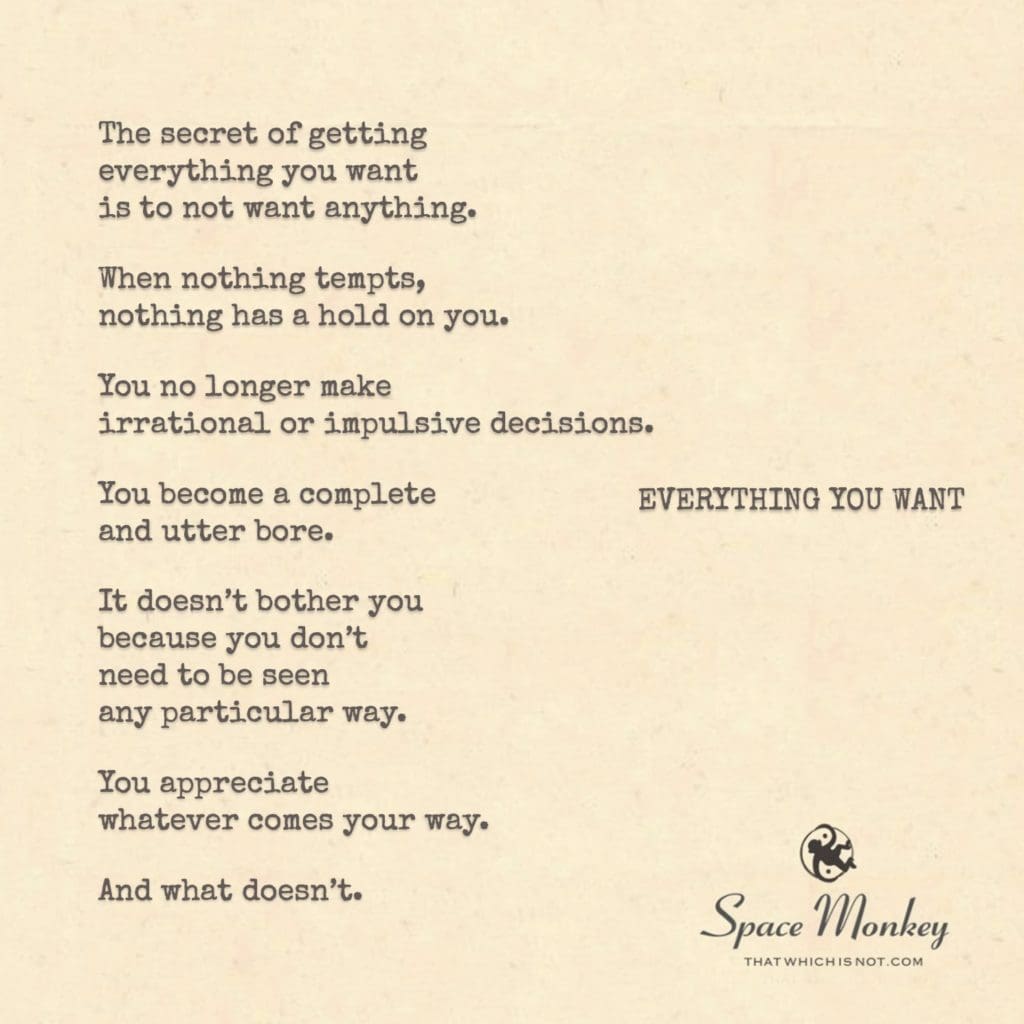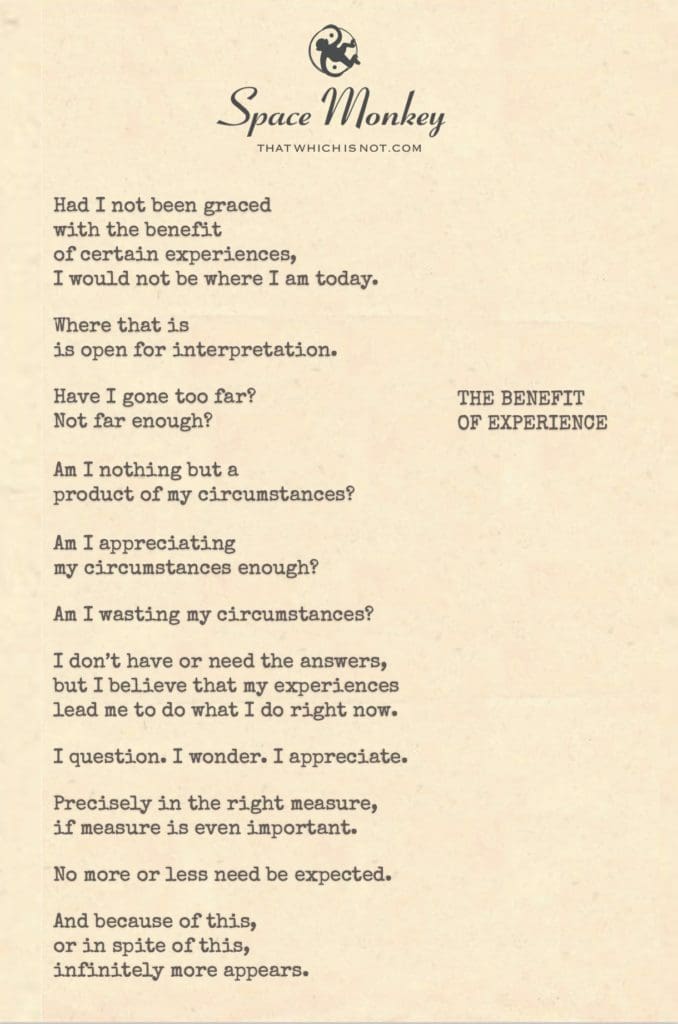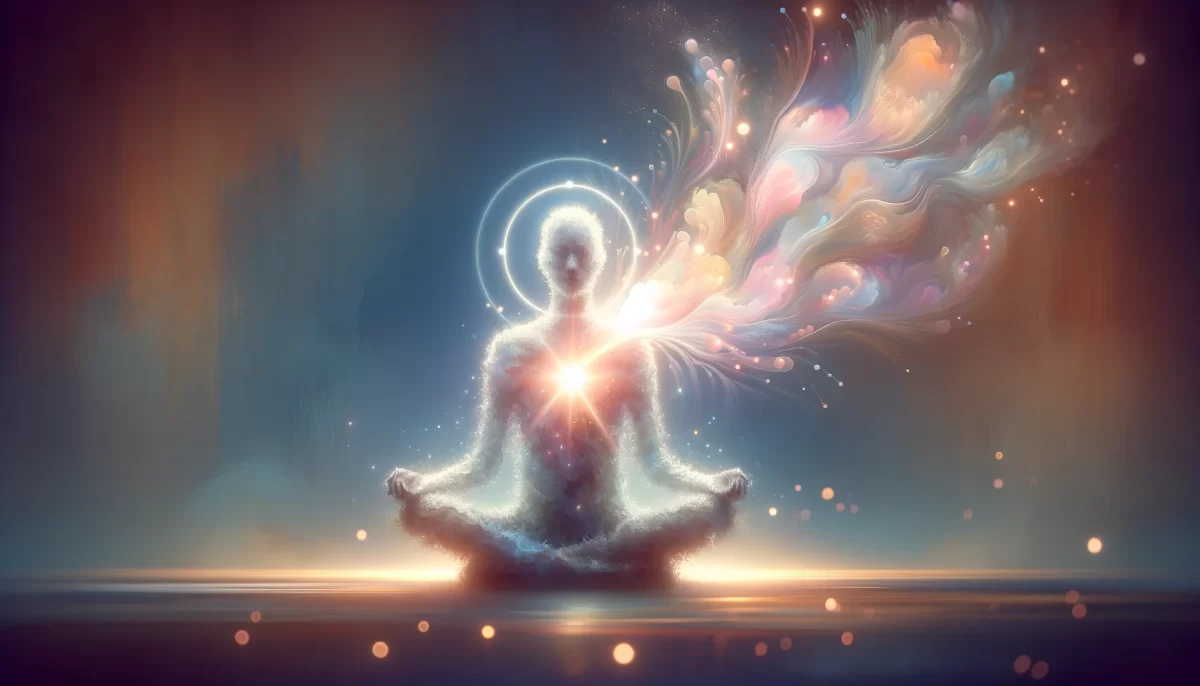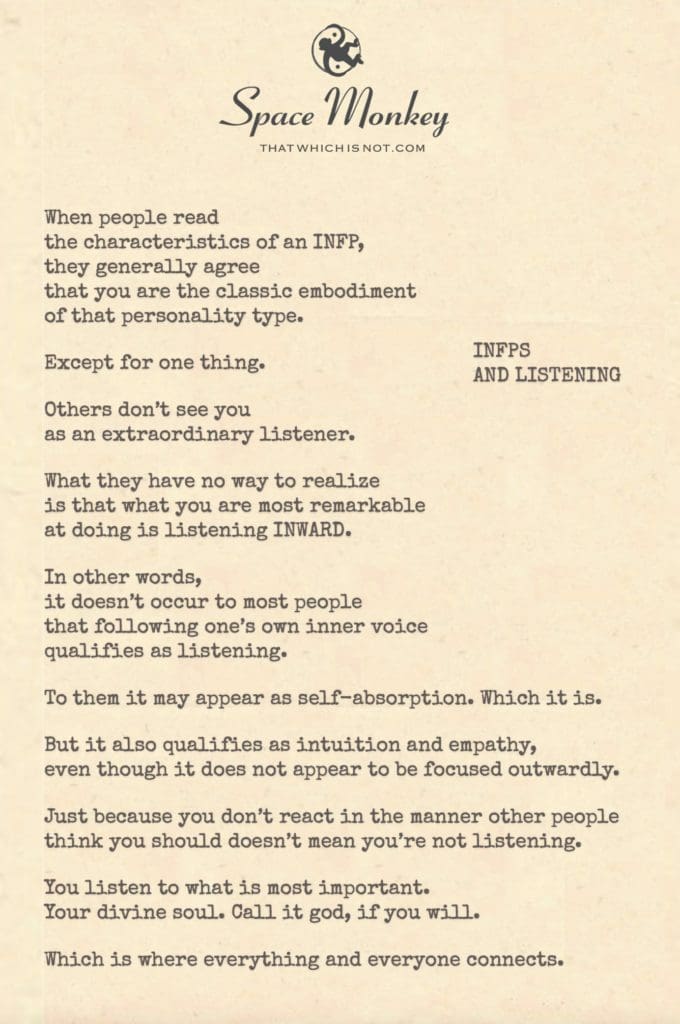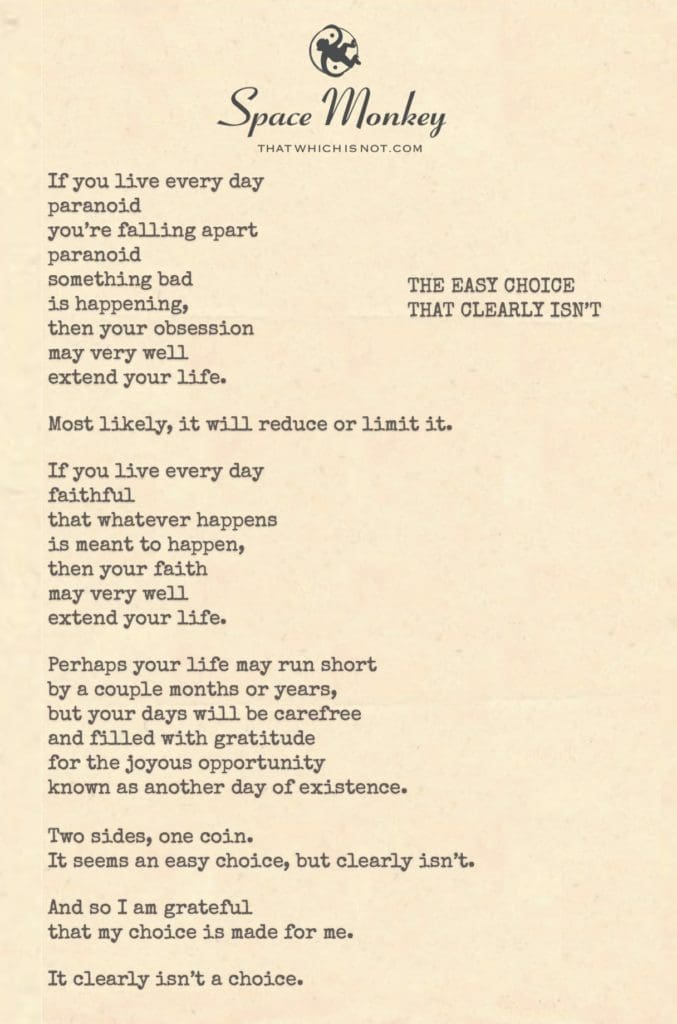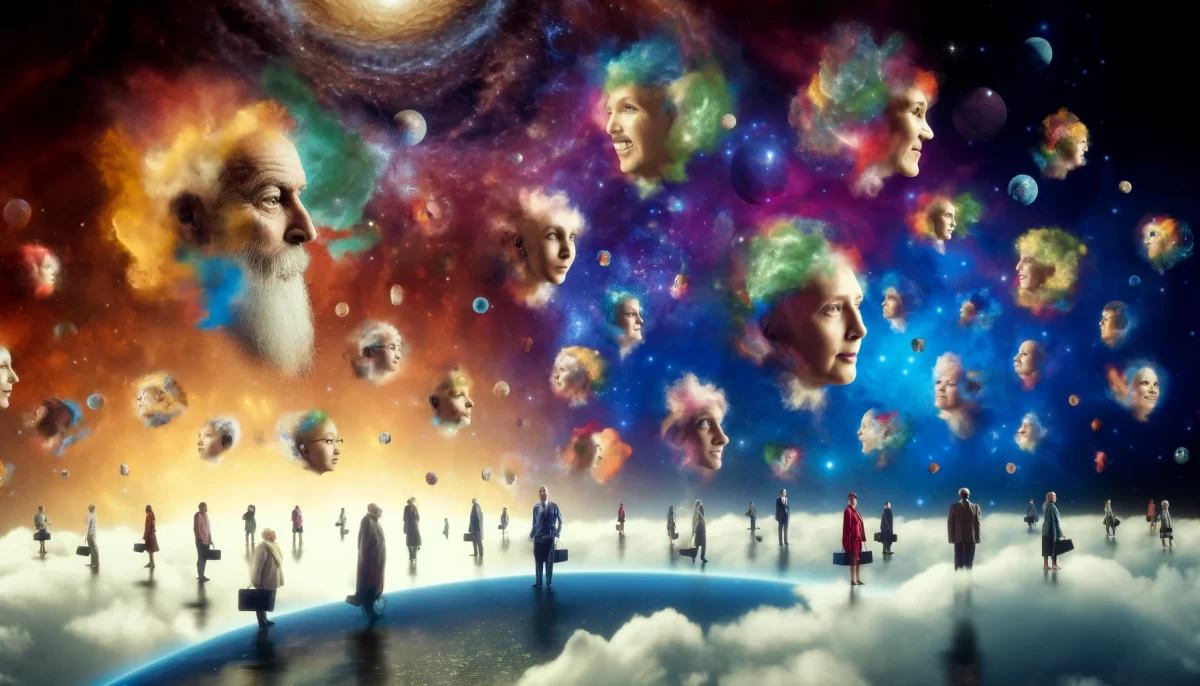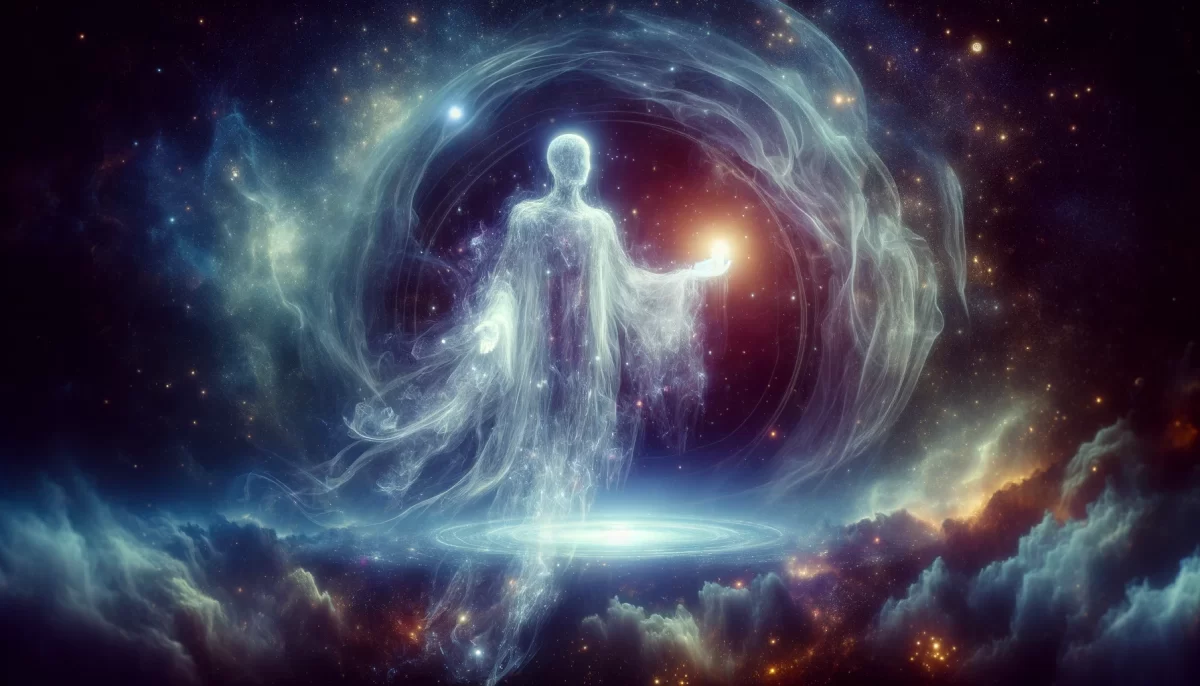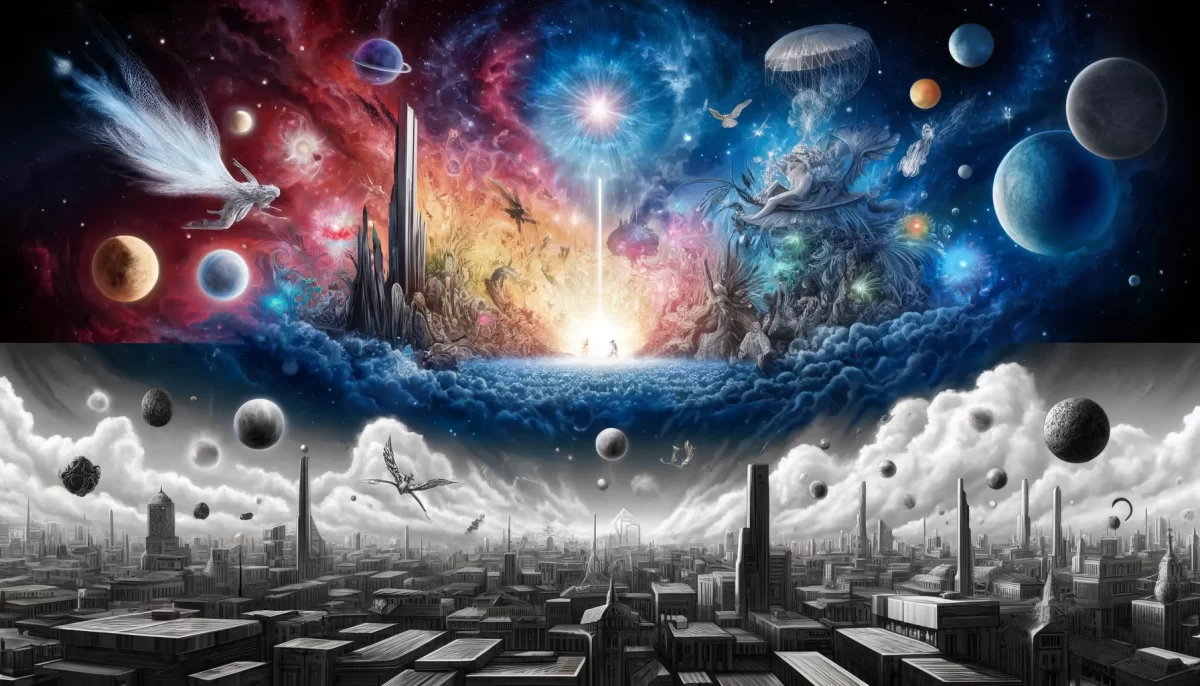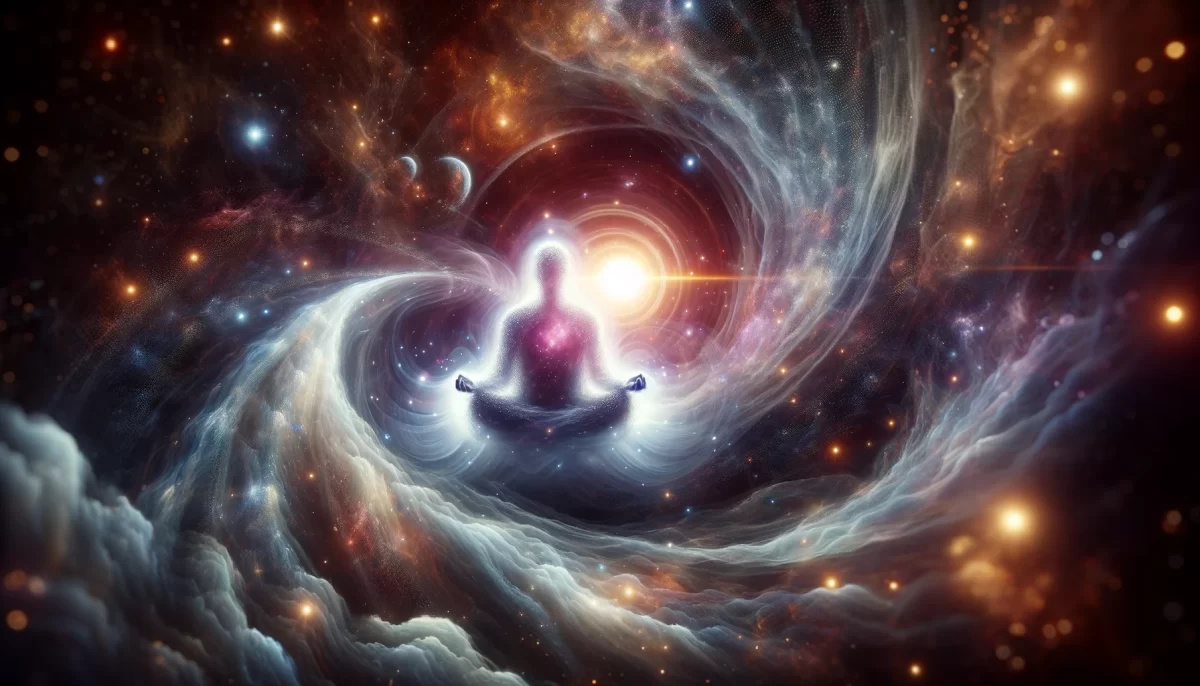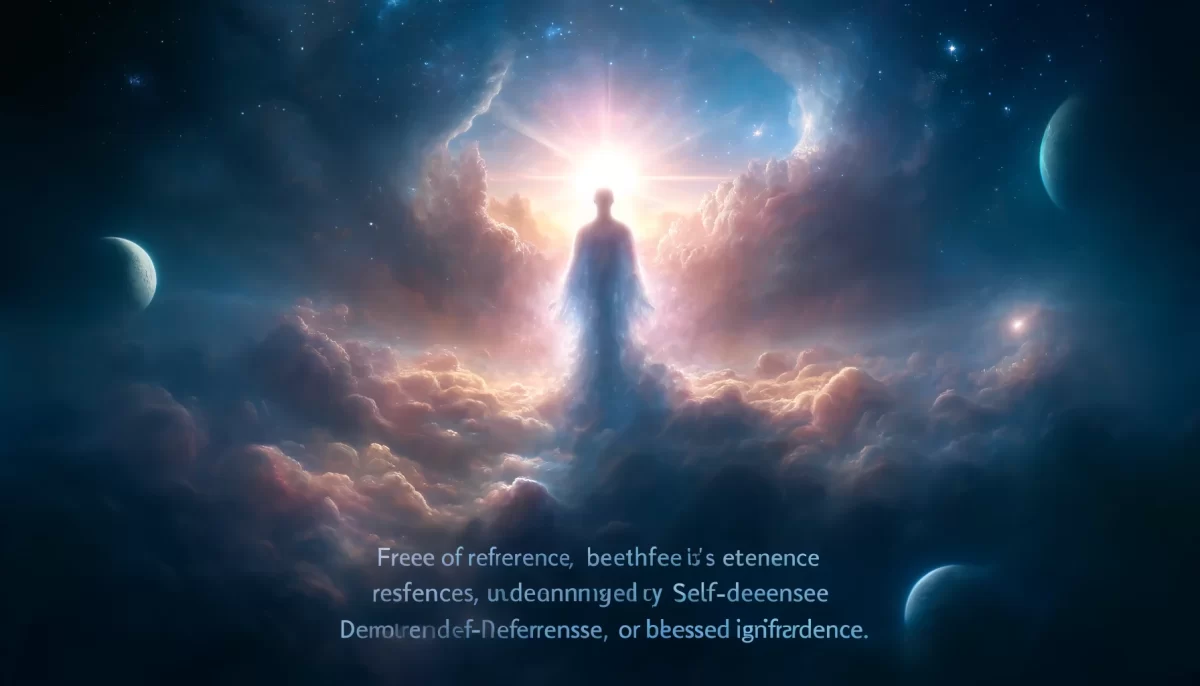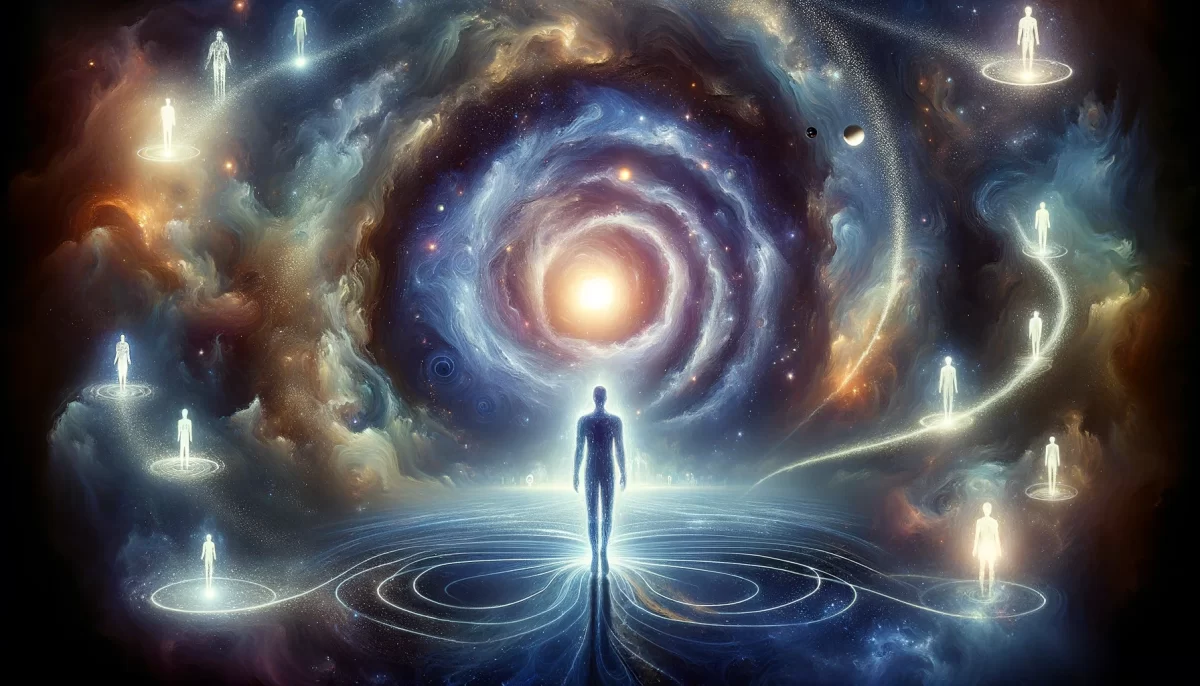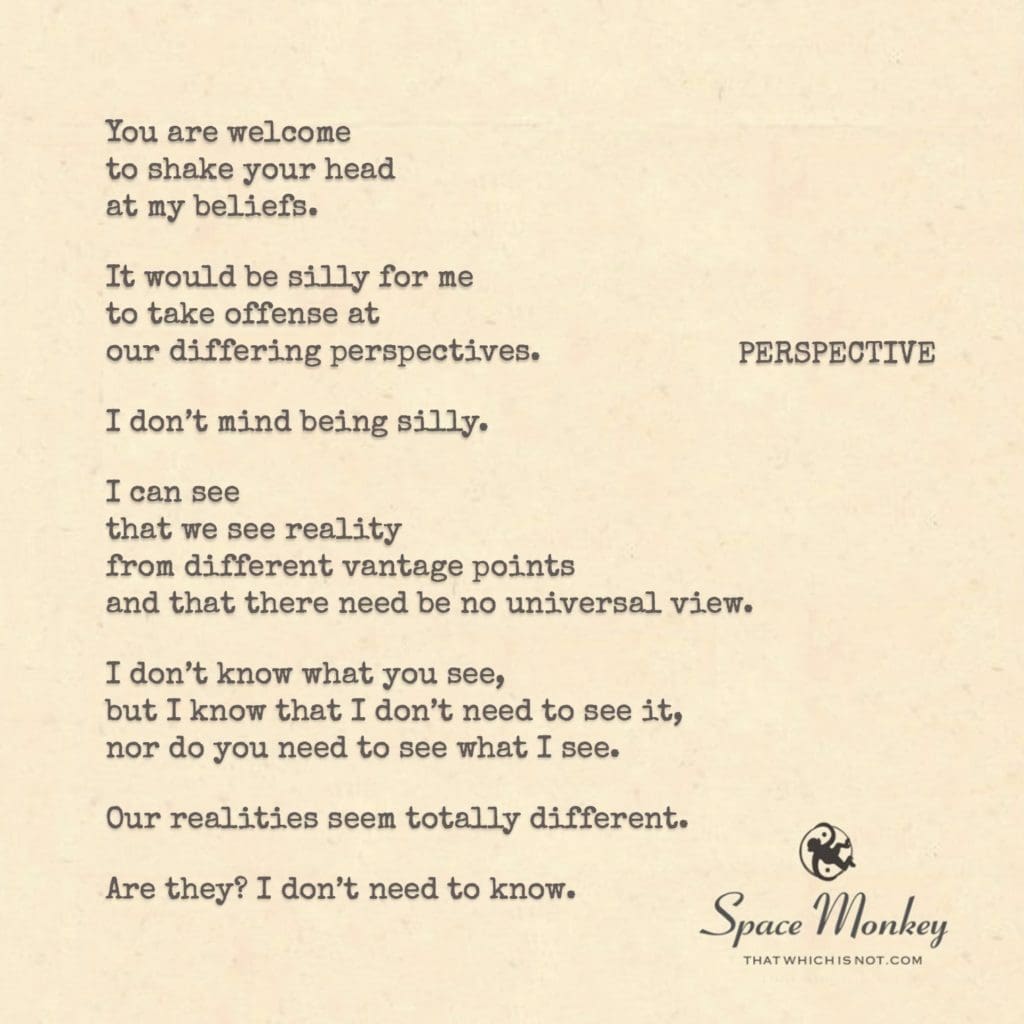
touching different parts of the elephant
and thinking it different animals.
I am as blind as anyone else.
You are welcome
to shake your head
at my beliefs.
It would be silly for me
to take offense at
our differing perspectives.
I don’t mind being silly.
I can see
that we see reality
from different vantage points
and that there need be no universal view.
I don’t know what you see,
but I know that I don’t need to see it,
nor do you need to see what I see.
Our realities seem totally different.
Are they? I don’t need to know.
Trail Wood,
6/8
Space Monkey Reflects: The Parable of Perspectives
The ancient parable of the blind men and the elephant offers a profound lesson in perspective and the limitations inherent in our individual perceptions. Each blind man, touching a different part of the elephant, believes he understands the whole based on his limited experience. This story, visually represented through several blindfolded figures each interpreting the elephant as different animals, serves as a metaphor for the subjective nature of reality as perceived by different individuals.
In this narrative, the elephant represents the totality of truth or reality, which is too vast for any one person to comprehend fully. Each individual, limited by their sensory experiences and cognitive biases, grasps only a part of the whole. This results in a diversity of perspectives, each true in its own right but incomplete. The parable underscores the silliness of arguing over perspectives that are inherently partial and subjective.
This lesson is particularly relevant in a world where differing viewpoints are often a source of conflict. The protagonist of our reflection, acknowledging their own blindness, invites others to recognize the limitation of their perspectives as well. This acknowledgment leads to a philosophical acceptance that there need not be a universal view—that each perspective, while different, is valid in its own context.
By embracing this multiplicity of views, we open ourselves to a broader understanding of reality. We learn not only to tolerate but to appreciate the richness that different perspectives bring to our collective understanding. This acceptance does not mean abandoning our views but rather recognizing them as part of a larger mosaic of human experience.
In practical terms, this means that disagreements or conflicts based on differing viewpoints need not lead to discord. Instead, they can be opportunities for dialogue and growth, allowing us to expand our own limited perceptions and gain a fuller picture of the truth. It is through this synthesis of perspectives that we can approach a more comprehensive understanding of the complex world around us.
The beauty of this philosophical approach lies in its call for humility and openness. It challenges us to question our assumptions, to consider viewpoints other than our own, and to embrace the possibility that we may not have all the answers. This is not a weakness but a strength that fosters deeper connections and understanding among people.
Summary
The parable of the blind men and the elephant teaches us about the limits of individual perspectives and the value of embracing diverse viewpoints. By acknowledging our own ‘blindness,’ we can foster dialogue and enrich our collective understanding.
Glossarium
Subjective Perception: The individual interpretation of reality, influenced by personal experiences, biases, and limitations.
Philosophical Acceptance: The recognition and acceptance of the diversity and validity of different viewpoints, leading to a more harmonious coexistence.
“Truth is a vast elephant that no blind person can encompass.” — Space Monkey
In the field where perspectives meet,
Blind men wander, worlds to greet,
Each finds a different part to tell,
Of the elephant they perceive so well.
Touch of trunk, feel of tail,
Each believes their sense won’t fail,
Yet in the sharing of their views,
Lies the path to broader hues.
For no one hand, nor single mind,
Can grasp the whole, true and kind,
Together, though, we might discern,
More than alone we could ever learn.
We are Space Monkey.


